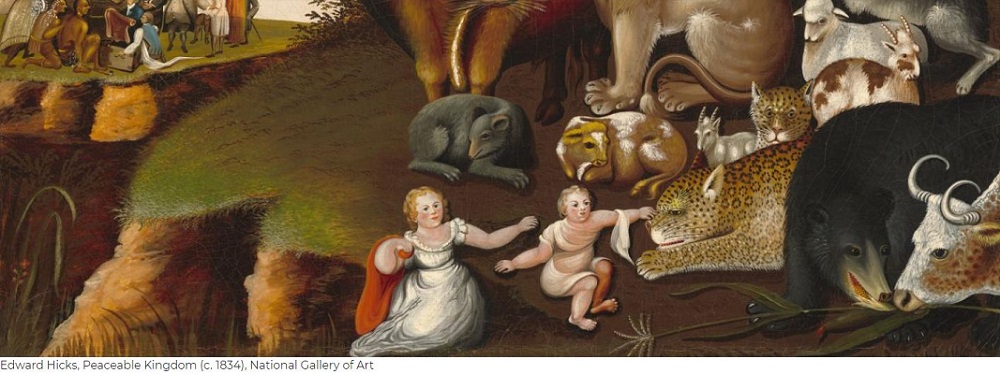Multicultural Citizenship 25 Years On
It is at best inconvenient to talk about multicultural citizenship in France; the country`s official republican conception of citizenship considers its citizens without cultural, ethnic, racial and religious differences. Despite this, Paris warmly welcomed at least three generations of scholars from all around the world working on multiculturalism at a conference commemorating Will Kymlicka’s seminal book “Multicultural Citizenship. A Liberal Theory of Minority Rights.”
In Multicultural Citizenship (OUP, 1995), Will Kymlicka challenged a widely held view in liberal political theory, namely that the liberal state can and should always be separated from culture, ethnicity and religion. He argued that this view was based on a misleading and pernicious myth, as democratic states always adopt policies that end up favoring one or more cultural groups. States for instance need to select one (or a few) official languages for the functioning of their public administration, public media and schools. The selection of any language disadvantages the speakers of a different language, while favoring the group that has the official language as their mother tongue.
While liberals simply insist that equality and freedom require the state to avoid any entanglement with culture, they fail to take into account the fact that all states maintain important connections with the culture of the majority, which leads to many disadvantages for minorities. Recognizing this fact, Kymlicka’s normative project was to develop a liberal democratic theory that justifies the rights of ethnocultural minority groups as forms of compensation for the privileges enjoyed by cultural majorities. His theory is based on a now-famous distinction between the right to self-government of national minorities and indigenous peoples, and the right to fair terms of integration of cultural groups resulting from immigration. Multicultural Citizenship became a seminal reference not only among scholarly circles but also at the level of public policy in various countries.
The Legacy of Multicultural Citizenship
In the 1990s, sympathy towards multiculturalism was at its highest point. In 1997, commenting on this trend, Nathan Glazer even claimed that “We are all multiculturalists now.” Yet, in the 2000s, the discourse on multiculturalism started to shift and a strong opposition to the multicultural conception of immigrant integration was voiced in several Western countries. In policy documents and official discourses, the recognition of cultural differences partly gave way to an emphasis on ‘civic integration’ and ‘social cohesion.’ This was a significant change, so much so that around 2010 various political leaders such as, David Cameron, Nicolas Sarkozy and Angela Merkel did not hesitate to proclaim that multiculturalism had failed or, even, that it was dead. Since then, anti-immigrant, populist, and nationalist discourses and political parties have been thriving all over Europe, North America and beyond.

In this context, we, Sophie Guérard de Latour (ENS Lyon), François Boucher (KU Leuven) and Esma Baycan (University of Geneva, NCCR) organized a conference at University Paris I Panthéon Sorbonne to reconsider the legacy of Multicultural Citizenship. Speakers explored the evolution of scholarly debates on liberal multiculturalism along five dimensions. First, they raised questions about the new challenges faced by multicultural societies in this era of anti-immigrant populism and nationalism. The second dimension focused on whether or not multiculturalism is indeed incompatible with social cohesion and integration. Thirdly, the contributions also explored the global diffusion of liberal multiculturalism and its viability in various regions. Fourthly, participants investigated the categories of minorities central to the theory and practice of multiculturalism. Finally, speakers examined the feminist and anti-colonialist critiques of multiculturalism and asked how alternative forms of multiculturalism could promote gender equality and the emancipation of indigenous peoples.
Varieties of Multiculturalism
One conclusion reached after two days of discussions is that despite the backlash against multiculturalism in the media and official political discourse, most scholars of multiculturalism and ethnocultural diversity did not radically reject the core values and principles of liberal multiculturalism. They rather proposed refinements regarding its moral foundations, practices and methodologies. For instance, while some have challenged the liberal foundations of Kymlicka’s project and have developed non-liberal forms of multiculturalism, others have tried to articulate republican conceptions of multiculturalism, based on a foundational ideal of non-domination, instead of liberal autonomy. Many authors have tried to improve the practice of multiculturalism by trying to understand how cultural rights can be made compatible with gender equality or how a legacy of colonialism should shape current relations between ethnocultural groups. Moreover, many scholars of multiculturalism have embraced new methods of doing political theory that focus on the importance of socio-political contexts or bring together empirical and normative bodies of knowledge.
To highlight and deepen those developments, we invited some participants to further explore those foundational, practical and methodological transformations of the theory of multiculturalism in a special issue. We hope that the resulting collection of essays will be published in 2023.
Esma Baycan Herzog has a joint Ph.D. in political science (University of Geneva) and philosophy (KU Leuven) and she is working on Democratic Citizenship in a Mobile and Multicultural World within the nccr – on the move.
François Boucher is a Postdoctoral Research Fellow at the Centre for Ethics, Social and Political Philosophy of the Institute of Philosophy at the KU Leuven. He works as part of the Justice and Migration project since the Fall of 2019.
Related publications:
Baycan Herzog, Esma, and Matteo Gianni. 2019. “What Is Wrong with the Swiss Minaret Ban?” In Religion and Political Theory: Secularism, Accommodation and the New Challenges of Religious Diversity, eds. Jonathan Seglow and Andrew Shorten. Lanham: Rowman & Littlefield, 175–94.
Baycan Herzog, Esma. 2021. “Immigration, and Common Identities: A Social Cohesion-Based Argument for Open Borders.” In Migration, Stability and Solidarity, eds. Corinna Mieth and Wolfram Cremer. Nomos.
Boucher, François and Alain Noël (eds.), Fiscal Federalism in Multinational States: Autonomy, Equality and Diversity, McGill-Queen’s University Press, 2021.
Boucher, François, “On the Collective Right to Religious Liberty in the Secular State”, Ethical Perspectives, 2021, 28/2, 149-179.


